2022 Marine Robotics Summer School
2022 Marine Robotics Summer School - Speakers
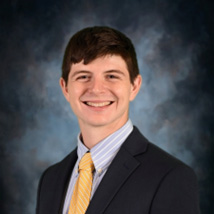
Alan Papalia
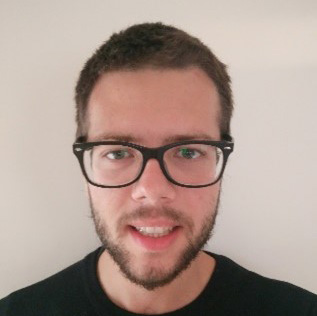
Alberto Dallolio
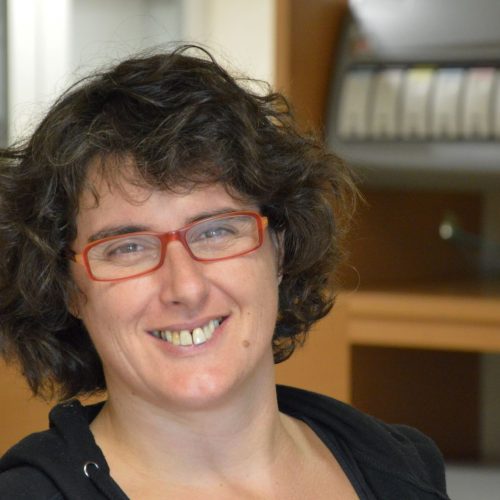
Ana Colaço

Ana Martins
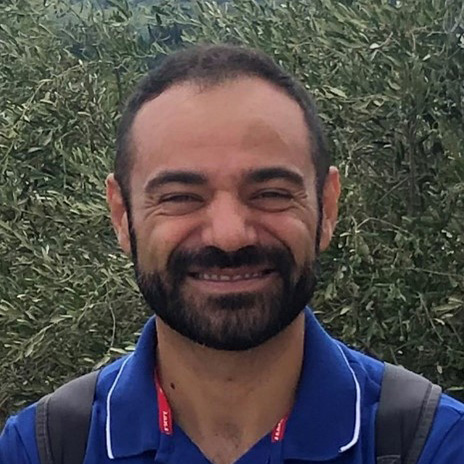
Antonio Novellino
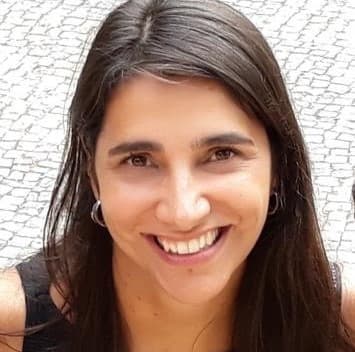
Ana Mena
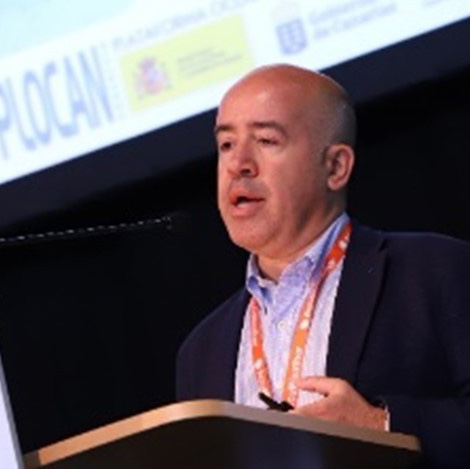
Carlos Barrera
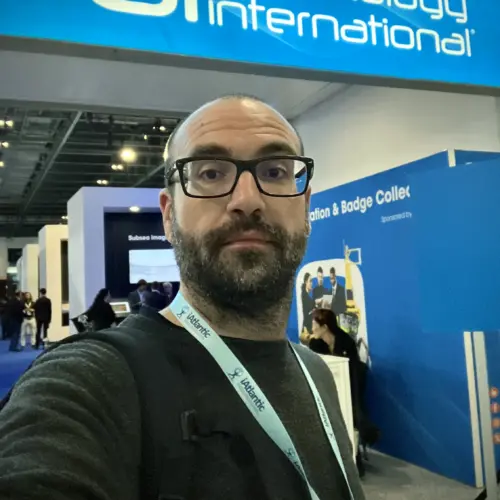
Carlos Dominguez-Carrió

Doug Hart
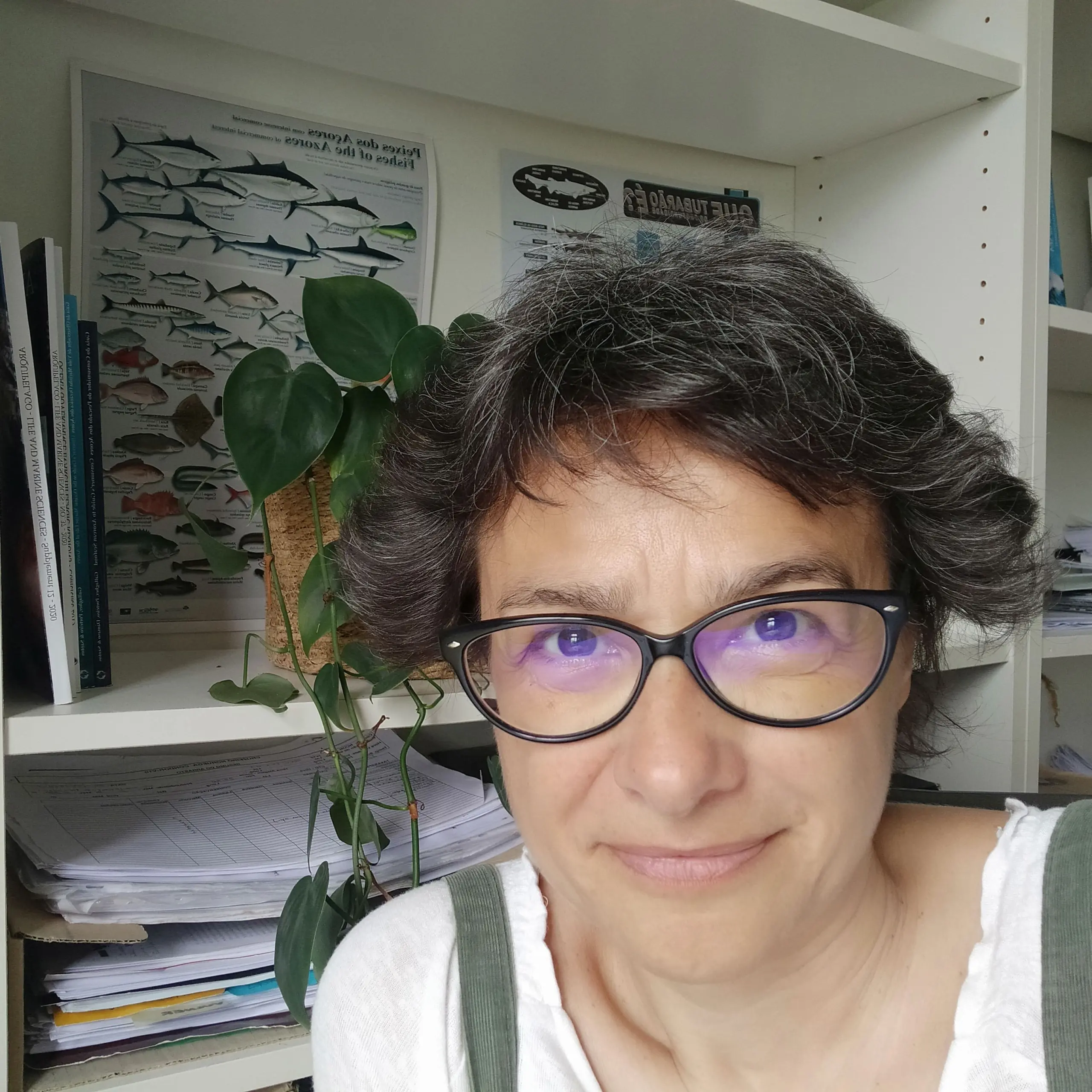
Eva Giacomello
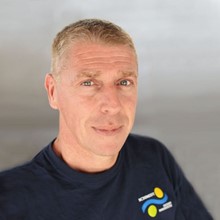
Errol Campbell
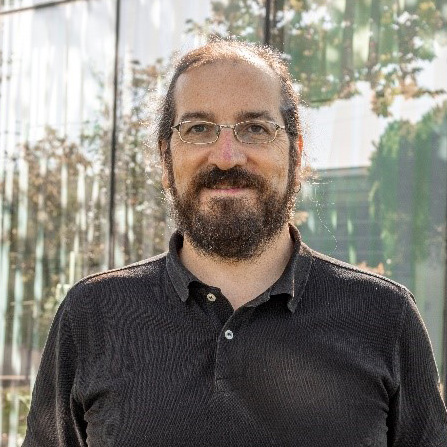
Francisco Campuzano
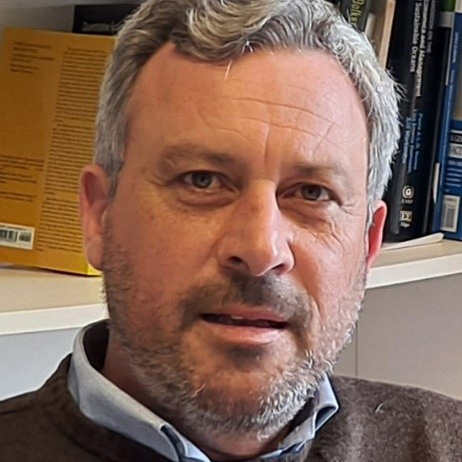
Gui M. Menezes
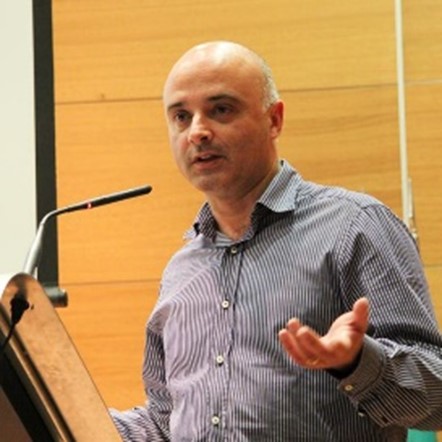
João Sousa
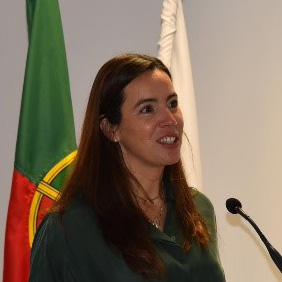
Helena Vieira
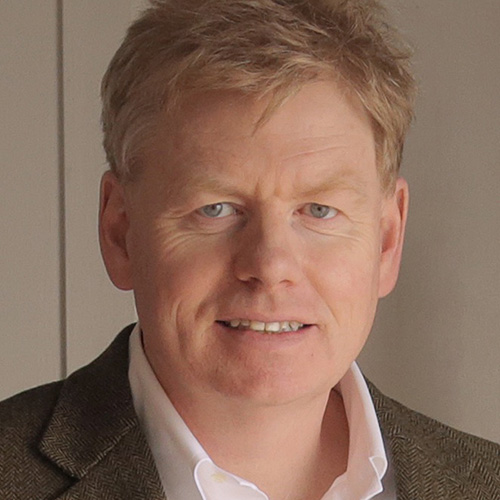
John J. Leonard
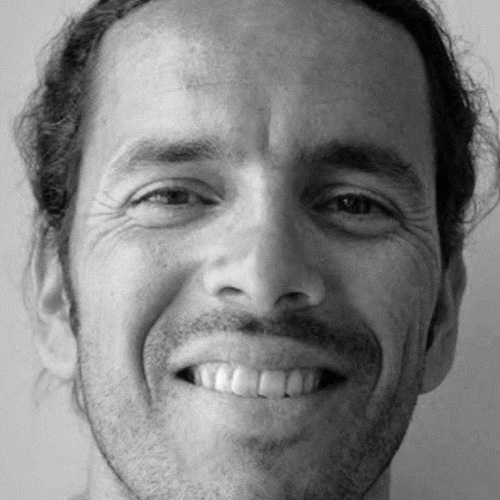
Jorge Fontes
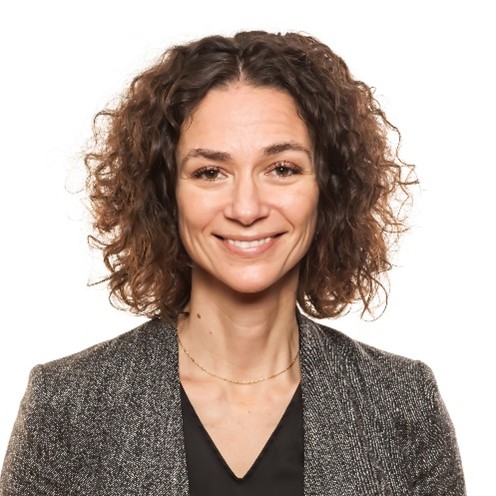
Julie Angus
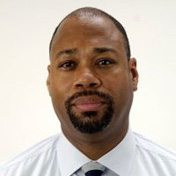
Michael (Mike) J. Wardlaw
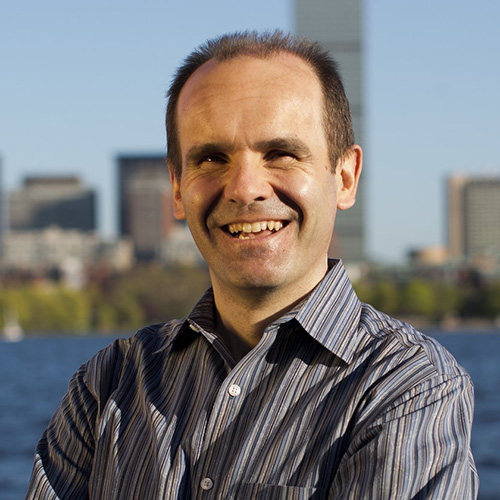
Pierre Lermusiaux
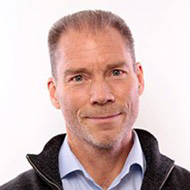
Patrick Gorringe
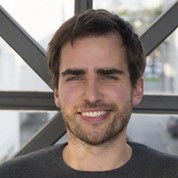
Renato Mendes
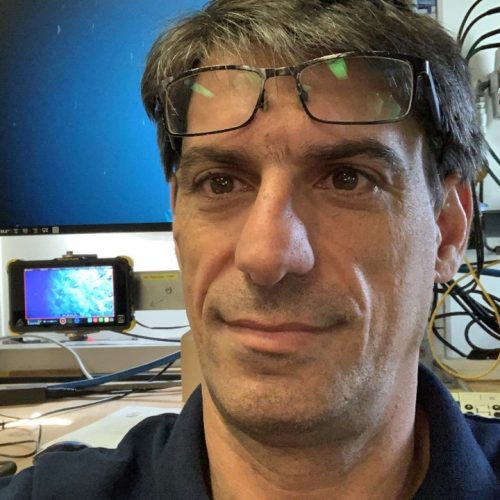
Telmo Morato
Alan Papalia
Alan Papalia is a fourth year PhD student in the MIT-WHOI joint program, advised by John Leonard. His research focuses on range-aided SLAM, the incorporation of pure range measurements into SLAM systems. Specifically, he works on the mathematical foundations of this problem, exploring how the structure can be used to develop more robust and reliable SLAM systems. Prior to MIT-WHOI, Alan worked at the Oregon State University Robotics Institute and graduated with a BS in Mechanical Engineering from UIUC.
Alberto Dallolio
Alberto Dallolio is a Postdoc at the Department of Engineering Cybernetics. He received a B.Sc. degree in Automation Engineering from the Alma Mater Studiorum University of Bologna in Jul. 2015 and a M.Sc. degree in Artificial Intelligence & Robotics from La Sapienza University of Rome in Jan 2018. He completed a PhD program in February 2022; the tile of his dissertation is “Design and experimental validation of a control architecture for a wave-propelled USV: From system design to ocean studies”. Competences: modeling and control of mobile robots, system identification and parameters estimation, nonlinear control theory, software and hardware development.
Ana Colaço
Ana Colaço is a researcher at the University of the Azores for more than 20 years. She specializes in hydrothermal vent ecosystems, trophic ecology of deep-sea systems, benthic ecology, ecosystem functioning and conservation. She has large experience in international cooperation participating in several projects as the institutional PI dedicated to observatories and tools for extreme environments (ESONET; EXOCET/D; FIXO3), and ecology and impact on the Deep-sea (CHEMECO; DeepFun- FCT MIDAS, JPIO MiningImpact I & II, Sponges-H2020; FunAzores-Açores2020). She participated on the Second World Ocean Assessment of the United Nations and contributed to The Portuguese Agenda for the Ocean promoted by the Portuguese Science Foundation. She is involved as an expert in several science-policy panels of the European Commission, International Seabed Authority, and the Portuguese government, and as nominee in CBD processes such as EBSA and the post 2020 GBF. She is presently co-chair of the Working Group Deepsea ecology (WGDEC) from the International council for the exploitation of the Sea. She is Commissioner from the Sargasso Sea Commission. She participated to over 35 oceanographic cruises with submersibles (including 12 as a PI) and to five manned submersible dives (Alvin, Nautile and Lula1000).
Ana Martins
Ana Martins is Doctor Communitatis Europeae in Ocean Sciences, field of Physical Oceanography. Presently she is Associate Professor of Ocean Sciences, Coordinator of the Department of Oceanography and Fisheries (DOP) at the Faculty of Sciences and Technology at the University of the Azores (FCT/UAc), Director of the Master Course in Integrated Studies of the Oceans, Director of the License course in Ocean Sciences and also, Oceanography team leader at DOP. Founding member of the R&D Centre OKEANOS (now institute), member of the FCT/UAc Working Group for the Promotion of Space Sciences, member of the POPA steering committee, EO NEREUS Group, and Committee member of the program SPIE Remote Sensing, among others. Since 1998, regent and lecturer of more than 20 disciplines in the field of Oceanography. Her team deployed more than 40 deep-sea moorings, collected oceanographic data in more than 3500 stations, installed an HRPT satellite receiving station, and a network of tide gauge stations in the Azores. Experience in national and international projects submission, coordination or partnership and as international referee. Also, EU COST and FP external expert. Supervision of post-doctoral researchers, and (under)graduate students. Holder of several international fellowships, honors, or prizes such as: Fulbright, FLAD, AAUW, NASA, Space Girls Space Women and, more recently, as team winner of the International Copernicus Masters competition. Main fields of research include among others: coupled physical-biological interactions and underlying physical forcing mechanisms in the open and deep ocean, climate variability studies, phytoplankton and bacterioplankton dynamics, and, more recently, marine pollution variability in coastal, open, and deep ocean systems.
Antonio Novellino
Antonio Novellino Biotechnology and Bioengineering, MSc Biomedical Engineering, Research Manager at ETT (gruppo SCAI). From 2008 to 2010, he served the European Commission, JRC – IHCP as a senior researcher. Since 2011, he is the ETT Research Manager. He served on the board of Consortium Tecnomar (about 100 companies working on maritime and environment technology, www.consorziotecnomar.com); the techno-scientific board of Consortium TRAIN (innovation in energy and transport management, www.consorziotrain.org). He serves on the techno-scientific board of the Ligurian Cluster of Marine Technology DLTM (www.dltm.it) and the board of Consortium TRAIN. He is member of the EuroGOOS DATAMEQ group and contributes to several EuroGOOS Task Teams for advising (http://eurogoos.eu/) on operational oceanography data management procedures and standards. He is member of the SOOS DMSC (South Ocean Observing System Data Management Steering Committee) and DOOS DMTT (Deep Ocean Observing System Data Management Technical Team). He serves on the EMODnet Steering Committee, the EMODnet Technical Working Group. He serves the Expert Team on WIS Centres (ET-WISC) and Task Team on Data Centres (TT-DC). He is co-author of scientific publications and he participates as reviewer for scientific journals for Elsevier and Frontiers. He is the EMODnet Physics coordinator and CMEMS DU/MDS deputy coordinator, deeply involved in EMODnet Data Ingestion and in the EMOD-PACE Partnership for China-Europe project and was/is involved in a series of national and EU projects in the field of oceanography and marine data management (SCHeMA project on FP7 Ocean of Tomorrow; JERICO-NEXT on H2020; AtlantOS on H2020 BG8, SeaDataCloud on H2020, EuroSEA on H2020, Jerico S3 on H2020, SO-CHIC on H2020, NAUTILOS on H2020, EMODnet Baltic Sea Check Point on EMFF/EASME, INCREASE CMEMS Service Evolution on CMEMS, LAMBDA CMEMS Service Evolution on CMEMS).
Ana Mena
Ana Mena is the Innovation and Education Coordinator of the MIT Portugal Program (MPP) in Portugal, since June 2021. She has a vast experience as professional at the interface of science and is passionate about exchanging knowledge with all citizens and contributing to a more advanced society.
Before coming to MPP, Ana Mena coordinated projects and teams at the Gulbenkian Institute of Science (IGC) for more than 8 years, first as Head of the Science Communication and Outreach Unit and lately as Head of the Public Engagment Unit. During this period, she was responsible for the institutional communication and press office of IGC for 6 years, and coordinated several educational and science communication projects, from teachers training and tailored science activities for students, to the production of educational resources and science and art projects. She has organized more than 20 public events for different audiences and stakeholders. Her work in science communication received awards from “Casa das Ciências” (Portugal), “Ciencia en Acción” (Spain) and “Acesso Cultura” (Portugal).
Also, Ana Mena was a founding member of the IGC Ethics Committee being involved in the establishment of internal procedures of the Committee.
Ana Mena holds a 5-year undergraduate degree (Licenciatura) in Microbiology and Genetics from Faculty of Sciences, University of Lisbon (2000), and a PhD in Biology from University NOVA Lisbon (2008).
Carlos Barrera
Carlos Barrera (Oceanographer, University of Las Palmas de Gran Canaria, 1997) is since 2007 Head of the Ocean Vehicles Unit at Oceanic Platform of the Canary Islands (PLOCAN). 25-year experience in ocean-tech with focus on autonomous observing systems and platforms. Technical and operational tasks are time-shared with desk activities related to R&D project-coordination, ocean governance initiatives and services management. Among others, currently is chair of the EuroGOOS Ocean-Glider Task Team, member of the Spanish Autonomous-Ships Working Group, The Maritime Alliance delegate for PLOCAN, coordinator of the PLOCAN Glider School and task leader within EuroSea project to create a recognized international network of Unmanned Surface Vehicles for ocean observing.
Carlos Dominguez-Carrió
Carlos Dominguez-Carrió is deep-sea researcher at the University of the Azores. His work focuses on better understanding the ecology of deep-sea benthic species and communities in areas of the Mediterranean and Atlantic Ocean using underwater imaging technology as the main sampling device. His studies focus on deciphering the ecological processes that shape the diversity and spatial distribution of deep-sea benthic fauna at different spatial scales to assist in the development of effective conservation strategies to protect such fragile ecosystems. He has also been actively involved in the development of affordable underwater imaging systems for the exploration and sampling of deep-sea benthic habitats, including the Azor drift-cam and stereo-BRUVs.
Doug Hart
Douglas P. Hart is an MIT professor of mechanical engineering and co-founder of three venture backed biotechnology companies. Doug has a history of successful inventions from within and outside of academia and serves as a technical advisor for numerous companies and professional organizations. He has been involved in the commercial development of technologies ranging from satellite propulsion and unmanned drones to surgical robots. Doug received his BSc degree in aeronautical/astronautical engineering from the University of Illinois, his S.M. degree in mechanical engineering from the Massachusetts Institute of Technology and his Ph.D. in mechanical engineering from the California Institute of Technology.
Eva Giacomello
Eva Giacomello is a biologist, working as Assistant Researcher at the Institute of Marine Sciences – Okeanos, University of the Azores. She has a PhD in Evolutionary Biology from the University of Padua, Italy. Her research interests include fish ecology and biology, seamount management and conservation, marine ecosystem services. Eva started her scientific career studying the reproduction of fishes at the University of Padua. She then moved to the University of the Azores, broadening her knowledge and expertise of issues related to deep-sea resource management and conservation. She is currently working on the ecology of demersal and deep-sea fishes, and responses of fish communities to ecological pressures, with special emphasis on the Condor seamount marine protected area.
Errol Campbell
Errol Campbell is Science Support Services Senior Manager for Schmidt Ocean Institute. He joined the British Ministry of Defence (MOD) as an indentured apprentice Mechanical Fitter Turner 1983-87 at Rosyth Royal Dockyard, Scotland UK. He attended Lauder College studying City & Guilds and ONC in Plant Maintenance & Mechanical Engineering, remaining with the MOD in various departments both on and offshore for 18 years mainly on ships and submarines, including five years with the Royal Fleet Auxiliary (RFA). During this time, he received the NATO Medal for service.
Errol then spent the next 18 yrs in the oil and gas industry, with responsibilities including ROV Pilot Tech, ROV Superintendent/Offshore Manager, Global Offshore Personnel Manager, Business Development Manager and ROV Manager. He worked nearly 14 years with Canyon Offshore, leaving to start Bibby Subsea in the US, where he worked the last four years. He joined Schmidt Ocean Institute in 2017.
He received US citizenship on Feb 14, 2018 after 14 years in Houston, and has recently relocated to Seattle.
Hobbies include soccer, golf and the great outdoors.
Francisco Campuzano
Francisco Campuzano is an oceanographer formed in the University of Las Palmas de Gran Canaria (Spain) with a PhD in Environmental Engineering from Instituto Superior Técnico (Portugal) and an M.Sc. in Estuarine and Coastal Management and Science at the University of Hull (U.K.). He has been involved in more than 20 research projects at the European, national and regional level in different areas as assessing ecological status, socioeconomics and conceptual and numerical modelling. He is the co-chair of the ICES WGOOFE WG, he is member of three EuroGOOS Working Groups: IBI-ROOS, MONGOOS and Coastal and member of Copernicus Marine Service Champion User Advisory Group (CUAG). In recent times, he was involved in the development of oceanographic operational systems linking watersheds, estuaries and the open ocean (Brito et al., 2015; Campuzano et al., 2016; Campuzano, 2018). He has led several European projects of operational oceanography and environmental management (e.g., Atlantic Area iFADO & CMEMS-LAMBDA) and is the author/co-author of 22 scientific papers and 26 book chapters. He joined +ATLANTIC CoLAB in 2021 to contribute in operational modelling activities.
Gui M. Menezes
Gui M. Menezes, is Auxiliar Researcher at University of the Azores, and Director of the of the Institute of Marine Sciences – Okeanos, a research unit of the University of the Azores. His research areas are marine ecology, deep-sea and seamounts ecology and fisheries of demersal and deep-water fish. He is the author or co-author of more than 70 scientific publications (ISI), 6 book chapters and co-editor of two special volumes of two international scientific journals. He is also co-author of a patent of a method to sample fish sizes of landed commercial species using vision technologies. He took part in more than 30 research projects with regional, national, or international funding either as coordinator or member of the research teams. He took part in numerous research campaigns aimed at demersal and deep-sea fish species in the Azores, Madeira, and Cape Verde, most of the times as cruise leader, onboard research vessel Arquipélago. Among others, he also participated in the MARECO campaign that took place in the Middle-Atlantic Ridge onboard the N/I G.O. Sars, dives in LULA submersible up to 900 m depth, and was a member of the Scientific Committee of the CENSEAM under the Census of Marine Life program. He taught classes on the master’s degree in Integrated Ocean Studies at Department of Oceanography and Fisheries of the University of the Azores, and supervised several internships, Master and PhD students. He was the national representative in the SCARFISH strategic group in the EU, member of several ICES working groups, and was coordinator of the Deep-sea and Open Ocean research group of the research center MARE. Between 2016 and 2020, he held the position of Regional Secretary for the Sea, Science and Technology on the Regional Government of the Azores.
João Sousa
João Tasso de Figueiredo Borges de Sousa is a Professor at the Electrical and Computer Engineering Department from Porto University in Portugal and the head of the Laboratório de Sistemas e Tecnologia Subaquática – LSTS (Underwater Systems and Technologies Laboratory). He holds a PhD and an MSc in Electrical Engineering, both awarded by the University of Porto.
His research interests include autonomous underwater, surface and air vehicles, planning and execution control for networked vehicle systems, optimization and control, cyber-physical systems, and applications of networked vehicle systems to the ocean sciences, security, and defence. He received the BES Innovation National Award for the design of the Light Autonomous Underwater Vehicle in 2006, an outstanding teaching award from Porto University in 2008 and the IEEE Ocean Engineering Society mid-career Rising Star award in 2018. He has been involved in yearly conferences and workshops and lecturing on networked vehicle systems in renowned universities in the United States of America and Europe. He was the chair of the 2013 edition of the IFAC Navigation, Guidance and Control Workshop and the chair of the 2018 IEEE OES AUV Symposium. He is one of the co-chairs of the IEEE/MTS Oceans 2021 conference that will take place in May 2021.
He is a member of the IEEE Robotics and Automation Multi-robots Systems Technical Committee and of the International Federation of Automatic Control (IFAC) Marine Systems Technical Committee. He is in the Advisory Board of the Swedish Marine Robotics Center and of the NATO MUSIC2 Innovation Advisory Board. He was the chief scientist for the Schmidt Ocean Institute cruise Exploring Fronts with Multiple Robots, which took place in the Pacific Ocean in 2018.
Helena Vieira
Helena Vieira is currently Full Associated Professor at University of Lisbon (Faculty of Sciences), teaching Entrepreneurship, Innovation and Technology Transfer to scientists and engineers. She is a researcher at BioISI centre, coordinating the blue biotechnology unit at Microbiology & Biotechnology (M&B) lab. She is also acting currently as the Chair of the Scientific Committee of the Circular BioBased Europe Joint Union, a public private partnership between European Commission and the Biobased Industry Consortium (BIC) to promote bioeconomy and circularity models. Previously she acted as Director General of Maritime Policy under the Minister of the Sea of the XXII Government of Portugal. She has over 22 years of professional experience in academic, industry and political roles, as a lecturer (U. Lisbon and U. Angola), consultant expert (United Nations, EU – BioBased Industry (BBI-JU), Circular Biobased Economy (CBE-JU), BlueBio Co-Fund, European Innovation Council, CINEA, EASME, etc…), political & administrative roles in government and European Commission and also as manager and coordinator of several companies and teams in the fields of life and ocean sciences and bioeconomy. With a PhD in Biomedicine (Imperial College of London) and an Executive Post Graduation in Leadership and Strategy in Biotech & Pharma from Harvard Business School, she has worked mostly in the borderlines of science, industry & policy, helping everyone to speak common languages and design solutions for common goals. Helena is an entrepreneur at heart and has founded a few start-ups and was co-founder and CEO (2005-13) of BIOALVO SA, a Portuguese marine biotech company. She was also Executive Director of BLUEBIO ALLIANCE (2014-19), the Portuguese network for marine bioresources sector. She speaks 5 languages and loves to travel & dive in any of the oceans of our planet!
John J. Leonard
John J. Leonard is Samuel C. Collins Professor of Mechanical and Ocean Engineering at MIT and a member of the MIT Computer Science and Artificial Intelligence Laboratory (CSAIL). His research addresses the problems of navigation and mapping for autonomous mobile robots. He holds the degrees of B.S.E.E. in Electrical Engineering and Science from the University of Pennsylvania (1987) and D.Phil. in Engineering Science from the University of Oxford (1994). Prof. Leonard joined the MIT faculty in 1996, after five years as a Post-Doctoral Fellow and Research Scientist in the MIT Sea Grant Autonomous Underwater Vehicle (AUV) Laboratory. He has participated in numerous field deployments of AUVs, including under-ice operations in the Arctic and several major experiments in the Mediterranean. He is an IEEE Fellow and an AAAS Fellow. https://marinerobotics.mit.edu/
Jorge Fontes
I am an Azorean native Marine Biologist (PhD). During my earlier career I focused on fish ecology and biology, artisanal fisheries, marine protected areas, moving on to fish recruitment dynamics and population connectivity applied to the design of MPAs during my PhD. For my first postdoc, I coordinated the mitigation and control program of the marine invasive algae. I have been actively involved in multiple innovative international marine technology projects (EU and EEA grants) to advance the state-of-the-art in the field of applied marine robotics for marine research. Over the last two decades I have been involved in multiple research projects of applied biotelemetry and biologging of marine animals, including invertebrates, reef and seamount fishes, as well as marine megafauna, mainly sharks and mobulids. I have focused on the development of new disruptive non-invasive biologging tools to track iconic marine megafauna and characterize their environment. I have a long record of international collaborative work and international field experience. A significant part of my work is used to support decision making. I have presented my research in numerous international conferences, and have published numerous scientific articles, one book and two book chapters. I supervise, Msc and PhD students, and coordinate several projects. My research has been featured in major international networks, WBO, National Geographic, BBC, Odyssey, Discovery channel, RTP.
Julie Angus
Julie is the CEO and cofounder of Open Ocean Robotics, a marine robotics and data analytics company. She is a bestselling author, scientist and explorer who received National Geographic’s Adventurer of the Year award when she became the first woman to row across the Atlantic Ocean from mainland to mainland.
Julie has written three books, has a graduate degree in microbiology and is a serial entrepreneur who cofounded two previous ocean-focused businesses. Julie is a director on NATO’s Maritime Unmanned System Initiative Innovation Advisory board and a board member for the Centre for Ocean Applied Sustainable Technologies (COAST).
Julie has an honorary doctorate from McMaster University and is a Royal Canadian Geographic Society Fellow. In 2020 she was awarded Innovator of the Year by BC Business and in 2021 she was recognized as Industry Icon by the BC Cleantech Industry.
Michael (Mike) J. Wardlaw
Pierre Lermusiaux
Dr. Lermusiaux is a Professor of Mechanical Engineering and Ocean Science and Engineering at MIT, and, since July 2018, Associate Department Head for Research and Operations in Mechanical Engineering. He received a Fulbright Foundation Fellowship (1992), the Wallace Prize at Harvard (1993), the Ogilvie Young Investigator Lecture in Ocean Eng. at MIT (1998), and the MIT Doherty Chair in Ocean Utilization (2009-2011). In 2010, the School of Eng. at MIT awarded him with the Ruth and Joel Spira Award for Distinguished Teaching. He has made outstanding contributions in data assimilation, as well as in ocean modeling and uncertainty predictions. His research thrusts include understanding and modeling complex physical and interdisciplinary oceanic dynamics and processes. With his group, he creates, develops and utilizes new mathematical models and computational methods for ocean predictions and dynamical diagnostics, for optimization and control of autonomous ocean systems, for uncertainty quantification and prediction, and for data assimilation and data-model comparisons. He has participated in many national and international sea exercises. He has served on numerous committees and organized major meetings. He is associate editor of three journals, and has more than 160 refereed publications.
Patrick Gorringe
Patrick Gorringe MSc Physical Oceanographer, responsible for International Ocean Relations and Contracts at SMHI, the Swedish Meteorological and Hydrological Institute. Patrick has devoted a lot of his work in bringing together diverse ocean observing communities in order to enhance the cooperation and by this increase the accessibility to marine data. He has built networks in Australia and teams in Europe by setting up, leading and motivating platform-oriented ocean observing Task Teams and linking these activities to existing global networks, identified and increased the number of oceanographic platforms providing data to regional, European and global data aggregators and initiatives and ensuring interoperable data streams reach all relevant users. He serves on a number of Steering Committees such as EMODnet, AtlantOS, SOOS DMSC (Southern Ocean Observing System Data Management Steering Committee) and is member of the EuroGOOS DATAMEQ group and involved in other EuroGOOS activities such as the EuroGOOS ROOSs and Task Teams. Patrick acts as the national focal point for GOOS (Global Ocean Observing System) and is a member of the EOOS (European Ocean Observing System) Operations Committee. He is heavily involved in EMODnet (co-coordinator EMODnet Physics, EMODnet Data Ingestion, EMOD-PACE Partnership for China-Europe) and partner in EU data projects such as SeaDataCloud, JERICO S3/DS, Copernicus INSTAC/BalMFC. In addition, Patrick acts as the Swedish expert in IOC (Intergovernmental Oceanographic Commission of UNESCO) and is a member of the IOC Executive Council.
Renato Mendes
Renato Mendes holds a PhD in Physics (Oceanography) from the University of Aveiro and completed a Masters in Meteorology and Physical Oceanography in 2010 at the same institution in Portugal. His research interests focus mostly on coastal oceanography, using multi-platform data, such as observations, remote sensing, and numerical models. Recently, his studies have addressed the use of networked autonomous systems to survey coastal fronts in a coordinated and collaborative manner. He is co-authored over 20 articles in journals as well as participated in the writing and submission of several FTC, EEA and H2020 projects.
He also holds a project management professional certification by the Project Management Institute (PMI). As of February 2021, he is a researcher at Colab +Atlantic with an alignment with the LSTS lab at FEUP. He worked as a mediator in interdisciplinary teams in the CoLAB + ATLANTIC combining his strong background in oceanography with ocean robotics, exploring innovative methodologies for ocean observation.
Telmo Morato
Telmo Morato is a Portuguese principal marine scientist at the Institute of Marine Sciences – Okeanos of the University of the Azores. Currently, he co-leads with Marina Carreiro-Silva the Azores Deep-sea Ecology research group aiming to advance the understanding of deep-sea ecosystems in a changing planet to inspire society and inform the sustainable management of the oceans. Over the last years, Telmo led several research projects and explorations that helped unveiling new deep-sea species, communities, biotopes, and even new hydrothermal vents, but also unveiled the impacts of deep-sea fisheries on such ecosystems. Telmo and his team lead the development of affordable camera systems to democratize deep-sea exploration and make it accessible to all. All the knowledge gained over the last decade has been transferred for improved ecosystem-based management and conservation of deep-sea ecosystems at regional, national, and international levels.
